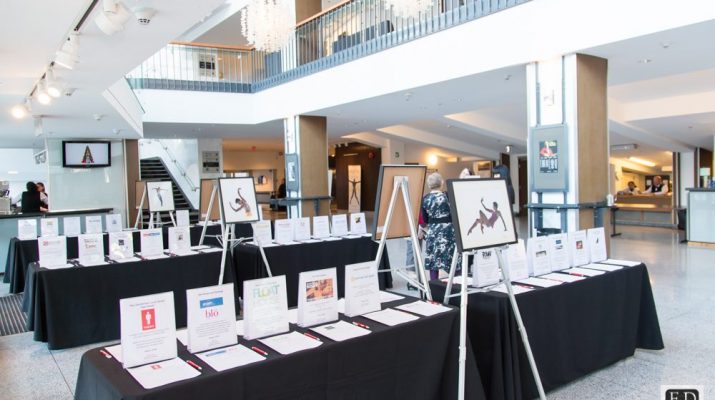Silent auctions have the potential to be a roaring good time for all… or a complete disaster.
Don’t get too worried, though: it’s definitely possible to run a successful silent auction.
To do so, however, requires a bit of planning — and a lot of commitment to picking the right items. Here are a few points to keep in mind as you start working on it.
Keep it Mission-Related
Your audience is attending the event to support your cause… so don’t be afraid to remind them of it!
One way to do this is to have some “items” that are directly equivalent to donations, such as “$50 buys meals for a family of four for a week” or “$100 pays for spaying one cat”. That way, audience members who may not feel as inspired by other items or who don’t win can still contribute.
You can also do this by asking the item donors to share on the item sheet why they chose to donate to your cause. That way, as potential bidders are looking through the item information, they’ll have your mission as well as what they’re donating to front of mind!
Create a Win-Win-Win Situation
Yes, it’s all about the auction items.
But it’s also about how they make your guests feel.
Your silent auction will be a success if the items you’ve laid out for auction are valuable to your attendees or offer up a unique experience.
Plus, the right items won’t just be a success for your guests: they’ll be a success for you and the people who donated the items.
When a guest “wins” an item, they should truly feel more like they got lucky, rather than feeling like they paid for something. Make them have a good time and they’ll look forward to the next such event. They should enjoy browsing, bidding, and talking about the items at your auction.
The people who donated said items should feel like your organization is getting an equal or higher value to the price of their item, so that they can feel good about having donated and can vicariously enjoy the satisfaction of the winning bidders. They want to see their items do well and raise money for you.
And these two factors mean that you’ll maximize the revenue from each item, secure future donations from the item donors, and ensure guests and donors both have a good time and will attend your future events: a win-win-win!
Of Course You Want Items That Sell Well
Many associations, non-profits and small membership organizations have limited resources and staff, so it’s critical that you put them to good use by focusing on finding auction items that will excite people and give you more bang for your buck.
But, you ask, how can you figure out what will excite your guests?
Think about your event audience. Are they young singles? Retirees? Big spenders? Art lovers? Sport fanatics? Wine lovers? Environmental enthusiasts?
If you know your audience fits into a particular niche, you can focus on finding items and services that would suit their interests. For example, if your organization is a sports club, items such as signed memorabilia, sporting event tickets and sporting goods may be seen as desirable and are sure to sell well.
And regardless of your crowd, there are certain items that tend to sell well among many demographics, and some that don’t.
Some of the items that work across the board are:
- Restaurant gift certificates
- Wine and wine collections
- Vacation getaways
- Hotel stays
- Sporting event tickets – especially VIP boxes that bidders would not otherwise be able to access
- Entertainment (concerts, theater, symphony, opera, ballet) tickets – especially when these events tend to sell out
- Gift packages of any of the items described above
- Personal services performed by your staff, your board or a group of your supporters. This could include experiences like babysitting by a favorite teacher, a party hosted by your board president for the winner and 10 friends at the board president’s house, monthly baked goods delivered by a staffer who is a phenomenal pastry chef, or a certificate good for 4 hours of IT support from your IT specialist. Get creative, and use the skills of the people in your network.
- Unique community experiences. For example, lunch with a respected professor, a day spent behind-the-scenes with a local broadcaster, a ride on a traffic helicopter, etc. Think of things that people may not otherwise be able to access, but that they’d find enjoyable or interesting.
- Once-in-a-lifetime experiences. If you have donors with a large budget, then by all means look for that walk-on part in a movie… the dinner for 8 cooked by a celebrity chef in your own home… the box seats for the World Series… the opportunity to conduct the symphony. If your donor base wouldn’t be able to afford it, though, don’t bother: you won’t get an appropriate bid, and the donor will never give you another item.
There are also some items that you shouldn’t bother looking for, including:
- Professional services such as (unless the provider is well known and respected):
- Interior design consultation
- Pilates classes
- A chiropractic session
- Financial services consultation
- Art (unless you have a crowd of art lovers and your art has been vetted by professionals).
- Antiques (same rules apply as for art)
To figure out which items will work well for your target audience, you can also send out a pre-event survey asking your audience what kind of items they would want at different price points (giving them options or just asking them to write in ideas). It takes a little more planning, but you’ll be sure of success!


